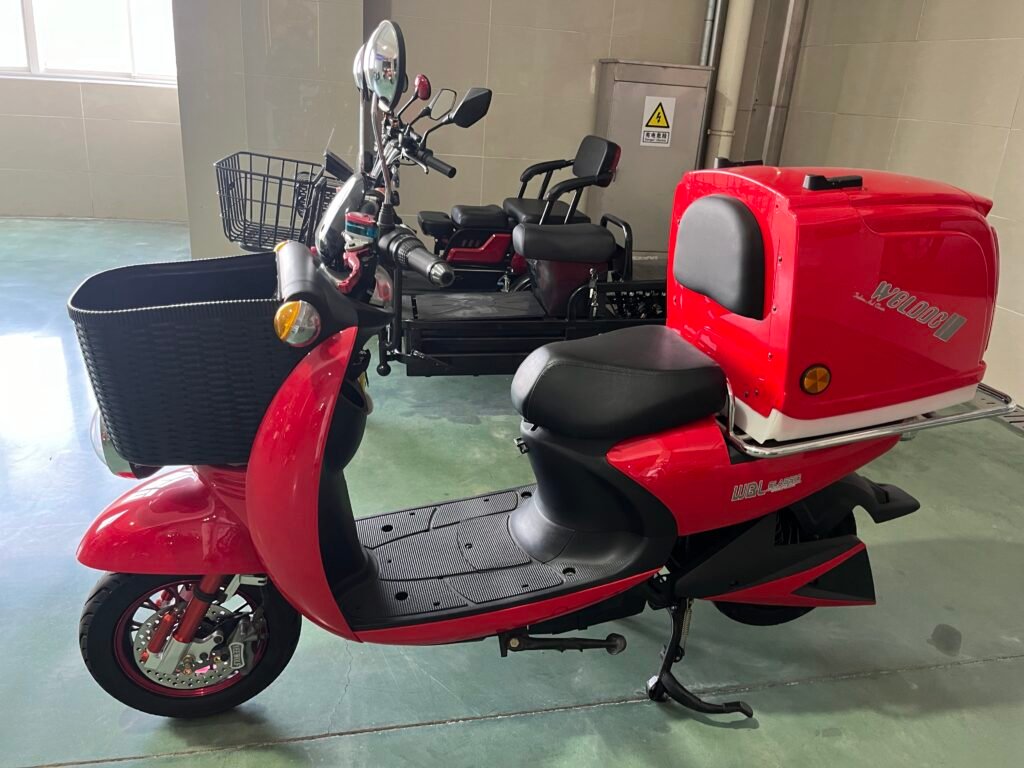TaiLing, Yadea, and Other Electric Two-Wheeler Brands Race into the Southeast Asian Market!
As Chinese electric two-wheeler brands like Yadea, TaiLing, Aima, and NIU focus their efforts on the Southeast Asian market, they are actively expanding their presence abroad and establishing local factories. This trend is driven by deep market insights and strategic considerations. ▲ Brands Expand into Southeast Asia, Creating a New Model for Globalization On August 12, 2024, TaiLing inaugurated its tenth global intelligent manufacturing base in Vietnam’s Binh Duong province. The first batch of “Made in Vietnam” TaiLing long-range electric scooters rolled off the production line, marking a significant milestone in the brand’s global strategy. TaiLing views Vietnam as a crucial market in its globalization efforts, aiming to transform the country into a benchmark for the global electric two-wheeler industry through localized investment and development. The company also plans to establish a technology center and production base in Thailand, promoting electric motorcycles in Southeast Asia to support the region’s transition to low-carbon transportation. In March 2024, Yadea held a ceremony to deliver the first vehicle from its Indonesian production and research facility. On May 13, Yadea laid the foundation for its Indonesian intelligent production and research base, the brand’s eighth globally. With an expected investment exceeding $150 million, this facility will cover 27 hectares and have an annual production capacity of 3 million units when completed in 2026. Yadea, which has exported to 100 countries and ranked as the global sales leader for seven consecutive years, is driving comprehensive international expansion through overseas bases, participation in international exhibitions, and building localized teams, making it a representative of “Chinese intelligence” on the global stage. Aima entered the “China-ASEAN New Energy Vehicle Production Base” in 2018, and its Indonesian production facility began operations in March 2023. In 2022, Aima’s exports to Southeast Asia increased by 154% year-on-year, with exports to Thailand rising by 174%. Other brands like NIU and Segway have either partnered with local distributors or established their own online and offline sales channels. Notably, cross-sector players like DJI, which recently entered the E-bike market, and Hellobike, which is expanding its shared electric vehicle services overseas, are also making waves in the global electric two-wheeler market, contributing to the success of Chinese brands abroad. ▲ Challenges of Localization for Foreign Brands The journey of global expansion is far from smooth, with potential pitfalls along the way. Uncertainties in the business environment, cultural and linguistic differences, varying legal regulations, and infrastructure challenges all pose significant obstacles. Setting up a factory abroad is just the first step in a long journey. In Southeast Asia, Japanese brands have long dominated the market, with Honda holding an 80% market share in Vietnam. Faced with such strong competition, how can Chinese electric two-wheeler companies successfully enter and establish themselves in these markets? Localization is undoubtedly a key differentiator. Sun Muchai, Senior Vice President of TaiLing Group, stated, “In the past, the ‘one size fits all’ approach, where a single distributor was selected in each country and provided with products at competitive prices, was sufficient. However, this approach is no longer viable.” Although Chinese electric two-wheeler companies began exploring overseas markets over a decade ago, only a few have successfully established themselves globally. Brands like Yadea and TaiLing have tailored their products to meet the unique characteristics of the Southeast Asian market. For instance, Yadea launched an electric motorcycle that accelerates from 0 to 100 km/h in just 3 seconds, outpacing any Japanese model, catering to enthusiasts who crave speed. TaiLing, on the other hand, developed models with enhanced climbing ability and extended range to suit the terrain and traffic conditions in Southeast Asia. Additionally, TaiLing introduced smart electric vehicles equipped with mobile applications that offer features like vehicle tracking and anti-theft alarms, providing tangible benefits to local consumers. Regardless of the industry, companies must not only “go out” but also “go in,” meaning they must fully embrace localization to achieve long-term success in international markets. Amid today’s wave of “going global,” the rise of many electric two-wheeler companies is just a small part of the bigger picture. These brands stand out because they dare to lead. Looking ahead, the future for brands like TaiLing, Yadea, and other electric two-wheeler manufacturers in Southeast Asia looks bright. With continued technological advancements and market expansion, these brands are poised to lead the industry, offering innovative and high-quality transportation products to Southeast Asian consumers. In the near future, electric two-wheelers may become a mainstream mode of transportation in the region, with brands like TaiLing, Yadea, Aima, and NIU shining brightly in this land of opportunity.
2-252x57.png)
